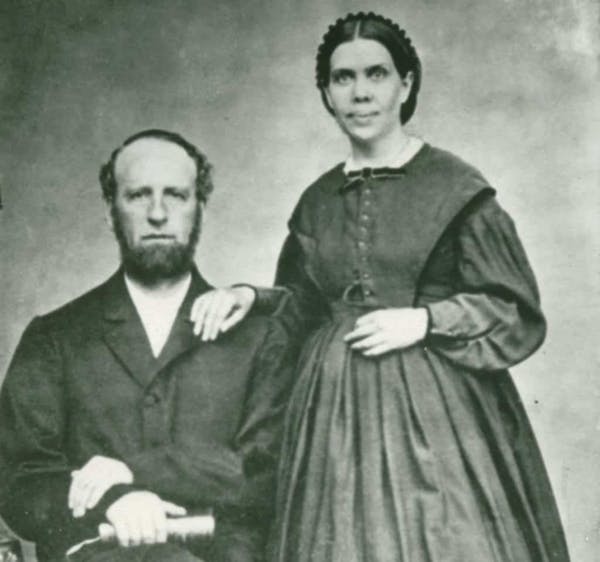Stephen Nelson Haskell was born in Oakham Massachusetts on April 22, 1833. His parents were Congregationalists and even as a boy, Stephen was interested in spiritual things. When he was very young he signed a temperance pledge and was later baptized into his parents’ church in 1848. As a youth Haskell learned soap making and was hired by an old farmer named How as a farmhand. How was a widower with a daughter named Mary who was partially paralyzed. Haskell often helped Farmer How to carry Mary outside so she could enjoy the sunshine and the fresh air outdoors. Mary was cheerful and kind, never complaining about her illness and always ready to share the little joys she had experienced throughout the day. Stephen enjoyed listening to her stories and spending time with her.
When How was on his deathbed he asked Stephen to look after his daughter who, being sickly and without any relatives would likely be destitute when he died. Barely 18 himself, Stephen agreed to honor the old farmer’s dying wish. Unable to think of any other way to help Mary outside of marrying her, Stephen proposed to her soon after Farmer How’s passing and they were married soon after he turned 18. Mary was 20 years older than Stephen. Their marriage was a tender and affectionate union. Stephen loved her and enjoyed her company. Mary had been a teacher and loved to read to him and share what she was learning with him.
In 1853 when he was 19 years old Haskell heard his first Advent sermon most likely preached by a first-day Adventist minister. He was so inspired and enthused by the sermon that onlookers challenged him to preach. The challenge resonated with him and he decided to try his hand at preaching, alongside his regular job as a soapmaker.
Later that year while he was en route to Canada, Haskell made a pitstop in the town of Springfield Massachusetts to change trains. While he was in transit he met William Saxby, a Seventh-Day Adventist who shared the Sabbath with him and gave him a piece of literature. The tract was a little pamphlet that had been published by James White at the Review and Herald Publishing house and was titled “Elihu, on the Sabbath” an edgy title which was meant to be a play on words.
Haskell read the tract and was convicted by it and began to keep the Sabbath himself shortly thereafter. The next year in 1854 he attended a conference for First-Day Adventists in Worcester, Massachusetts where he was keen to share the truth about the Sabbath with his Sunday-keeping brethren. To his surprise, many of the First-Day Adventists resisted his preaching though he managed to convince Thomas Hale and his family regarding the validity of the Sabbath. Later that year Joseph Bates paid the Haskell’s a visit and shared all the teachings surrounding the three angels' messages with them. Both Stephen and Mary Haskell were convicted by Bates’ teaching and accepted the message he shared. They were baptized into the Seventh-Day Adventist Church shortly thereafter.

